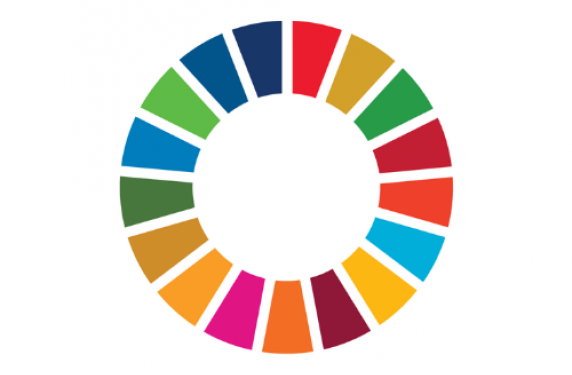-
Last updated on
The first 15 goals correspond with the three pillars of sustainable development:
- people (social)
- planet (ecological)
- prosperity (economic)
The last two goals create the indispensable framework:
- peace (SDG16 – peace and security)
- partnership (SDG17)
An initial introduction.
Today, many people in developing countries have to make do with less than 1.25 USD a day. The intention is to halve poverty in national terms by 2030. Ultimately, poverty must be eradicated.

Everyone has access to affordable food. New agricultural techniques mean healthy and qualitative food can be sustainably grown and farmed. This guarantees food security for everyone.

Infant and maternal mortality must be reduced. The same goes for alcohol and drug abuse. Information about infectious diseases is required to prevent their spread. The UN wishes to draw more attention to mental illness as well as calling for fewer road casualties.

Boys and girls are free to go to primary and secondary school. They also have the opportunity to go to college or university. Everyone should have access to technical, vocational or university education, regardless of their gender or ethnicity.

We have to do away with gender inequality, such as the glass ceiling, the pay gap and gender violence. Like men, women are entitled to good health and knowledge about sexuality and reproduction.

Everyone has the right to safe drinking water and sanitation. Water quality will be improved, including through reducing pollution, stopping the dumping of chemicals and by halving the amount of waste water. Water scarcity must be addressed.

Energy must be produced and used more efficiently. Everyone has access to modern, affordable and sustainable energy. Renewable sources are becoming increasingly important.

The least developed countries in particular are in need of economic growth. Safe working conditions, decent work for men, women and young people and protection of labour rights can contribute to this. The UN aims to eradicate slavery, forced labour and child labour. Economic growth must under no circumstances harm the environment.

A strong economy and social welfare are founded on sound, sustainable infrastructure. Innovative industry and Internet for everyone are also vital.

Inequality – both between different countries and within those countries – must be addressed. Low wages, for example, can grow faster and developing countries must have a greater say in the decision-making process for international financial and economic institutions.

The housing of the future must be adapted to a growing population. This must be combined with safe, clean and sustainable building. Residential areas will have more greenery and nature. Good public transport provides an answer to traffic pollution.

Our consumer society produces a lot of waste. We must sustainably manage raw materials and use them efficiently. Citizens all over the world must be reminded of the advantages of a more environmentally-friendly lifestyle. Food waste must be limited and we must produce less waste in general.

Climate action is affecting every country on every continent. Policy-makers must therefore take measures and citizens must become aware of the ways in which they can adapt to climate change. The UN wants to ensure that vulnerable nations are more resilient when it comes to natural disasters.

The seas and oceans are at risk and must be protected. Overfishing, waste and illegal fishing are at odds with a sustainable policy. The subsidies for such practices will be phased out.

Ecosystems on land such as forests, marshes and mountain ranges must be protected. The conservation of our biodiversity is a priority. Degraded nature areas must be restored.

Peace, security and legal certainty are vital factors that contribute to a better world. The protection of children against abuse or ill treatment and the fight against corruption are also an aspect of this. People are entitled to competent and fair government on all levels.

The UN expects greater cooperation, both between companies, governments, citizens and organisations, as well as between all the players among themselves. Technology, sharing knowledge, trade, finance and data are all vital. Cooperation is the key to further sustainable growth.

HLPF / First Belgian evaluation report
The achievement of the objectives is monitored annually at the “High Level Political Forum on Sustainable Development” (HLPF) in New York. The FPS Foreign Affairs plays a coordinating role in Belgium's participation in this annual "high mass" on sustainable development.
At the HLPF in 2017, Belgium presented its own first Voluntary National Review. The report is the result of an intensive and inclusive process, involving the federal government, the federal states and a large number of civil society organisations. A second evaluation report will be prepared.
